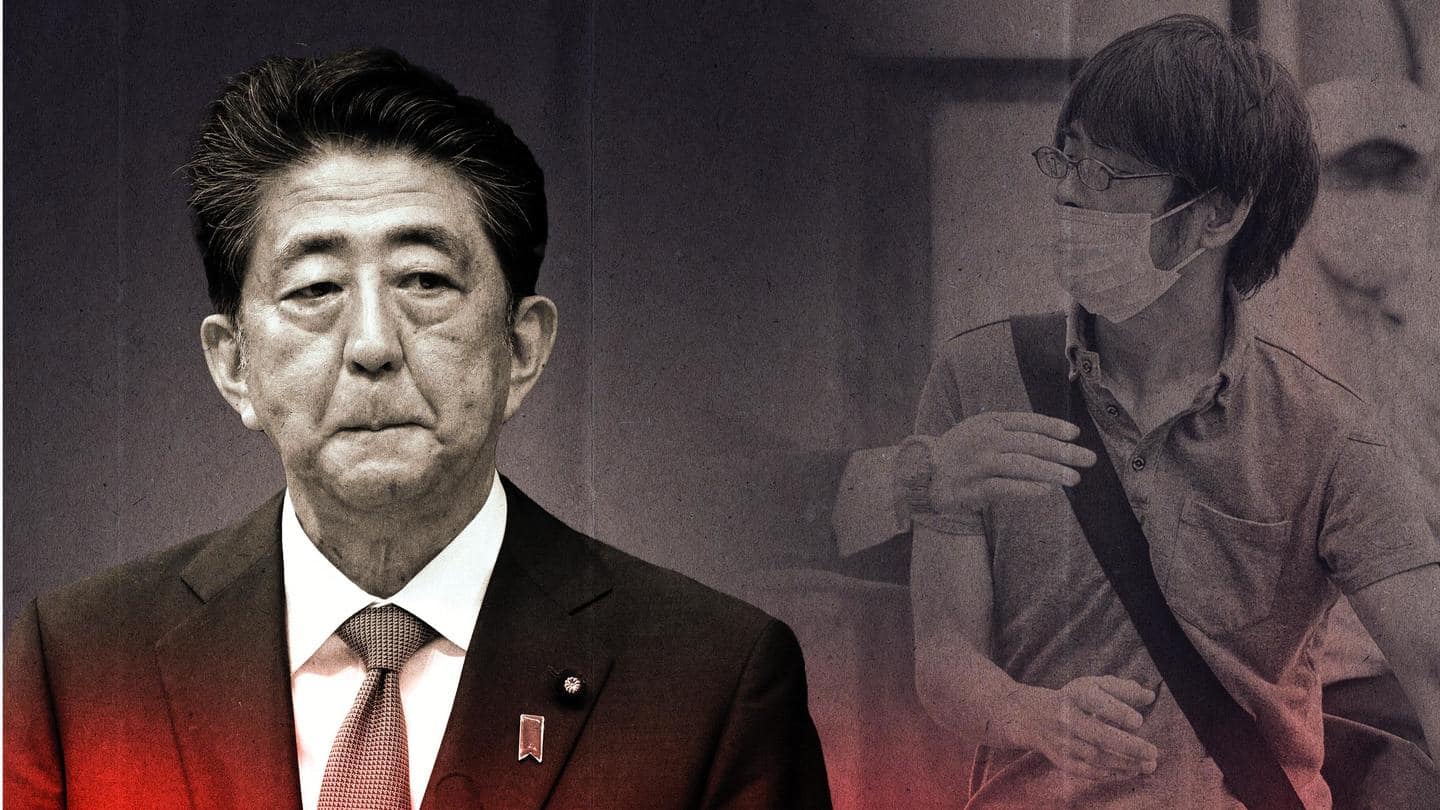
Shinzo Abe's killer initially wanted to attack somebody else: Report
What's the story
Tetsuya Yamagami, the killer of Shinzo Abe, had no intention of attacking the former Japanese prime minister, according to Kyodo News, which cited police sources.
Yamagami intended to attack the leader of a religious group he believed had cheated his mother, it said.
Interestingly, the shooter did not attempt to flee after shooting Abe twice at close range with a handmade shotgun.
Context
Why does this story matter?
With Abe's assassination, the entire country was baffled as to how a person could acquire a gun in one of the safest nations in the world and shoot at a respected political figure.
Despite the fact that the assassin was quickly captured and taken by police for questioning, the incident caused widespread outrage.
It also invited condemnation and condolences from international leaders.
Motive
Why did he kill Abe then?
Abe was allegedly attacked because Yamagami thought the two-time prime minister had supported the religious organization domestically.
Yamagami acknowledged going to other places where Abe spoke.
According to Kyodo News, Yamagami, however, denied targeting Abe because of his political views.
Notably, Police visited Yamagami's residence in Nara shortly after he was brought into custody on Friday and found explosives and handmade weapons inside.
Information
Ex-serviceman has been unemployed since he left his job
Kyodo News further said that the suspect served three years in the Maritime Self-Defence Force of the country before leaving in 2005. Yamagami resigned from his job due to being "tired" at the time of his attack on Abe, according to The Japan Times.
Incident
What do we know about the incident?
Reports said Yamagami opened fire on Abe when he was delivering an election rally in Nara, Japan.
In a gray T-shirt and beige jeans, the gunman was then seen being tackled by security personnel.
Photographs and videos taken at the scene showed Abe fainting and laying face-up on the pavement.
People immediately crowded around him while someone tried to resuscitate him.
Condemnation
Strong reaction from PM Kishida
Meanwhile, Prime Minister of Japan Fumio Kishida strongly condemned the act.
"Everything that can be done is being done to revive him. I'm praying from the depths of my heart that his life will be saved," Kishida said on Friday in an emotional media address before Abe was confirmed dead.
He also said that the clear motive behind the attack was still unknown.
Modi
India observes national mourning for Abe
India observed national mourning on Saturday as a mark of respect for the former Japanese Prime Minister.
The announcement was made by Prime Minister Narendra Modi on Friday immediately after Abe's death.
Modi took to Twitter and said that national mourning will be observed "as a mark of our deepest respect" for Abe, describing him as one of his "dearest friends."
About
Who was Shinzo Abe?
Notably, Abe was Japan's longest-serving Prime Minister from 2012 to 2020, when he stepped down due to persistent ulcerative colitis.
He had previously served as Japan's youngest prime minister since World War II for a year in 2006.
Even after resigning, he maintained a stronghold on the ruling Liberal Democratic Party (LDP), commanding one of its key groups.